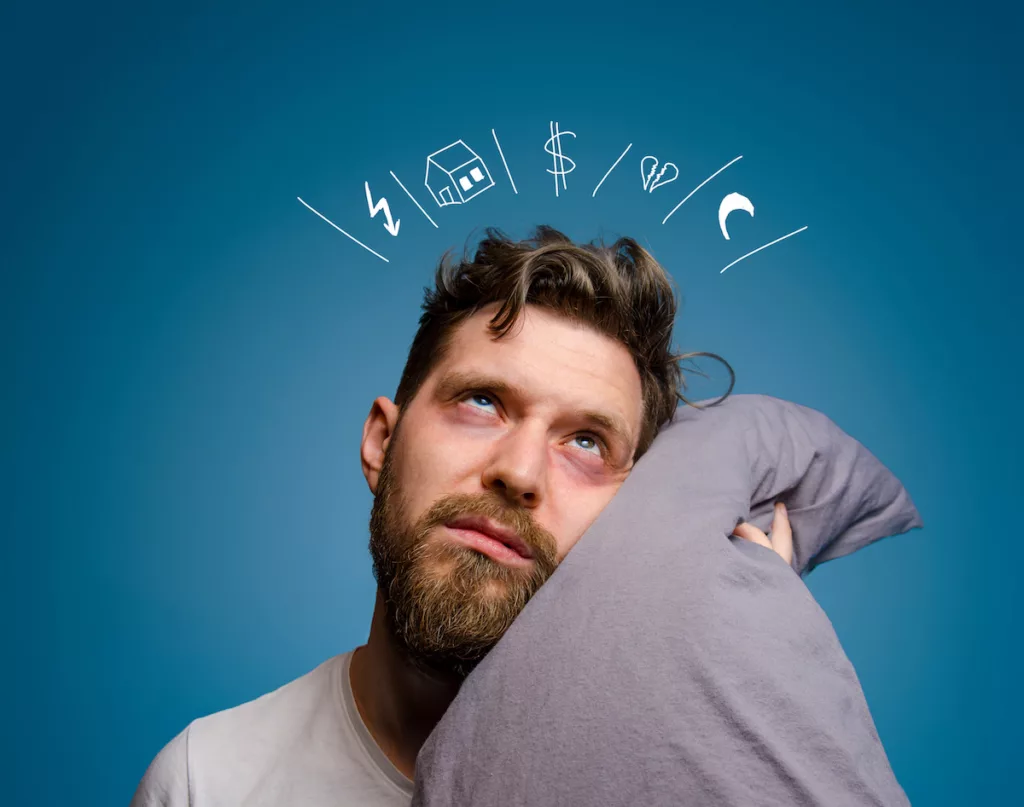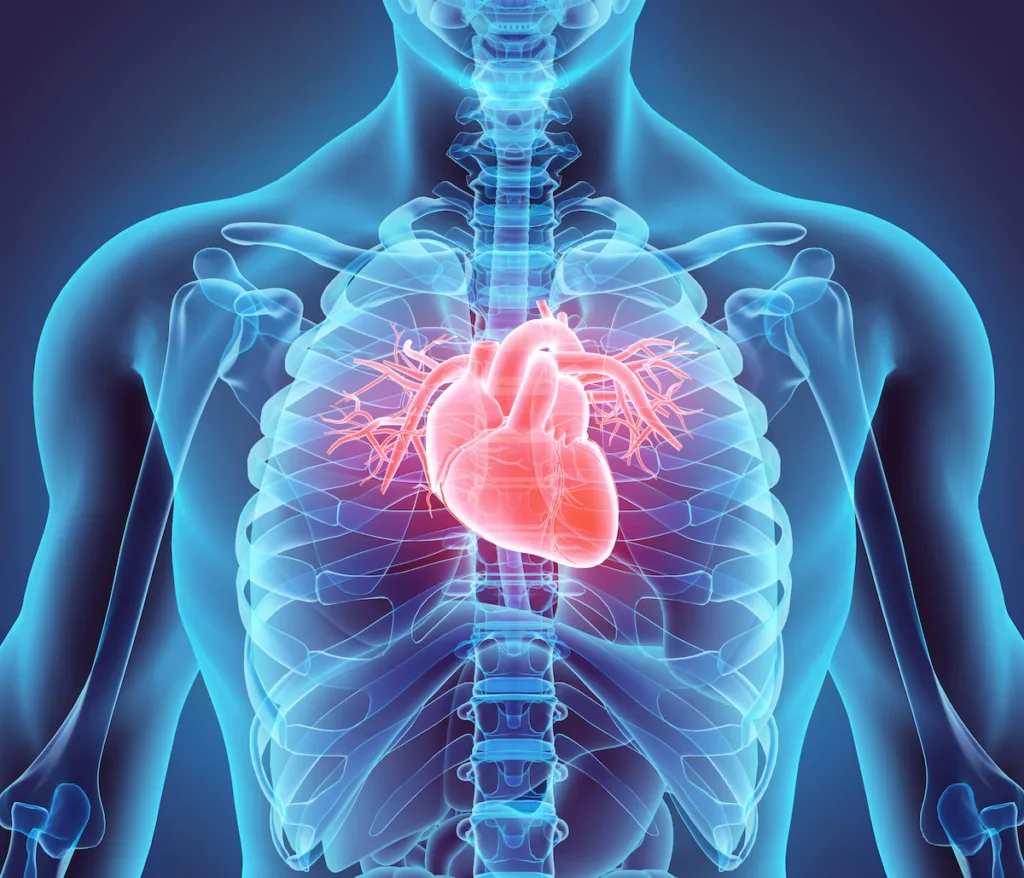What if there was a powerful tool that could extend your life, sharpen your memory, fuel your creativity, enhance your attractiveness, and keep you in the prime of health?
This miracle solution decreases your craving for unhealthy food, offers robust protection against cancer and dementia, and significantly reduces your risk of heart attacks, stroke, and diabetes. It can also make you happier and less anxious.
Sound too good to be true? It’s not. This is no newfangled Superdrug or high-priced therapy. In fact, it’s entirely free, abundantly accessible, and scientifically proven. This miracle is a good night’s sleep.
This is why when working with clients we should always prioritize sleep over diet and exercise.
Table of Contents
Introduction
Drawing from over 17,000 rigorously scrutinized scientific studies, sleep expert Matthew Walker heralds the transformative power of sleep in his book, “Why We Sleep.”
Yet, in developed nations, a staggering two-thirds of the adult population consistently fail to secure the recommended eight hours of sleep per night.
This paradox is puzzling. With such compelling reasons to prioritize sleep, why does it often fall to the bottom of our to-do lists?
The reasons are manifold, from misinformation and lack of understanding about the importance of sleep to simply failing to prioritize it amidst our busy lives. Yet, the takeaway remains clear and stark:
Skimping on sleep isn’t just a threat to our daily productivity or mood; it’s a risk to our very lives. The less you sleep, the shorter your lifespan.
Given this, it’s high time we shift our perspective, treating sleep not as a luxury or afterthought but as the vital, life-sustaining function that it truly is.
So, buckle up as we dive deep into the compelling world of sleep and its profound impact on health and performance, especially for your fitness clientele.
Our mission? To convince you that encouraging clients to prioritize sleep is not just good coaching—it’s a game-changer.
The All-Encompassing Impact of Sleep Deprivation: A Vital Perspective for Trainers
Here at Strength Matters, we have an unwavering mantra: Health comes first. It’s the lynchpin of our holistic approach to wellbeing, which prioritizes three critical components—Walk, Water, Sleep (WWS).
To grasp the importance of WWS in our philosophy, take a moment to delve into our previous article:
Read: Unleashing the Potency of WWS for Ultimate Health & Fitness
Consider the irrefutable role of water and sleep in our lives; their absence leads to nothing short of a catastrophe – death. The severity of sleep deprivation has led Guinness World Records to officially outlaw all attempts to break sleep deprivation records. That’s how vital it is.
Sleep deprivation isn’t just an inconvenient hurdle. It pervades every aspect of our lives, shaping us socially, economically, physically, and nutritionally.
It leaves no stone unturned, affecting every organ, every cell, and every function of the human body. Yet, we seem to live in an era that champions the “sleep is for the weak” mentality—a viewpoint that is tragically misguided.
For clients striving towards athletic performance goals, or weight and fat loss targets, sleep isn’t just a recommendation—it’s an absolute necessity.
The effects of sleep deprivation can decimate any progress made towards these physical or performance-based goals. To put it plainly, all the sweat and perseverance in the gym can be negated by inadequate sleep.
The result is a slow, or even stagnant, progression toward goals, despite working harder instead of smarter.
However, the implications of sleep deprivation extend far beyond a sluggish workout or delayed fitness results. The ramifications are more profound, more insidious, and far-reaching. Let’s delve deeper into this unseen crisis.

The Art of Sleeping: A Biologically Driven Blueprint for Optimal Sleep
Matthew Walker’s groundbreaking book, “Why We Sleep,” has provided illuminating insights into the mystery of sleep. One such revelation concerns the so-called mid-afternoon slump.
If you’ve ever noticed colleagues dozing off during post-lunch meetings, or if you’ve personally felt drowsy in the afternoon, you’re not alone.
I used to attribute this afternoon’s lethargy to a heavy lunch or natural variance in alertness. However, it appears that this is an inherent biological phenomenon.
Human sleep patterns fall into two primary categories:
- Monophasic sleep
- Biphasic sleep
Monophasic sleep refers to a prolonged, unbroken period of sleep, ideally lasting for 7-8 hours. In contrast, biphasic sleep involves a long sleep episode followed by a shorter siesta in the mid-afternoon, typically lasting 30-60 minutes.
The mid-afternoon drowsiness we often experience, technically termed the “post-prandial alertness dip,” is an evolutionary adaptation. It’s etched into our genetic blueprint, representing an intrinsic need for humans to sleep and take short naps during the day.
In essence, biphasic sleep is a fundamental human need. We are biologically wired to follow this pattern. Sleep experts argue that biphasic sleep, involving a 7-8 hours night sleep followed by a 30-60 minutes afternoon nap, is the default human sleep model.
But modern societal demands have led to a prevalence of monophasic sleep, which is a deviation from our inherent sleep pattern. The health implications of such a shift are now under serious scrutiny.
Consider a study conducted by Harvard University in the early 2000s. As part of a societal shift, people in Greece were encouraged to transition from a siesta-centric lifestyle to a monophasic sleep pattern.
Over six years, the research tracked the cardiovascular health impact on 23,000 participants, all of whom had no history of coronary heart disease or stroke at the study’s outset.
The results were startling. Participants who abandoned their regular siestas suffered a 37% increased risk of death from heart disease compared to those who continued their mid-day naps. In working men, the mortality risk spiked by over 60% for those who stopped napping.
The takeaway is simple yet profound: neglecting biphasic sleep could potentially shorten our lifespan. Trainers and clients alike need to consider this when planning a holistic health strategy.
The Sleep-Memory Connection: Unleashing Cognitive Potential Through Rest
A myriad of benefits are tied to sleep, but one that stands out is its positive influence on memory and learning – particularly pertinent for skill-based training that underlies health, fitness, and nutrition.
The saying “practice makes perfect” could be more accurately rephrased as “practice with adequate sleep leads to perfection.”
Depriving ourselves of sleep hampers an essential phase of motor memory development within the brain.
As a result, newly acquired health and wellness skills might become ineffective and challenging to solidify.
Countless studies explore the correlation between sleep and human performance, extending from everyday fitness enthusiasts to top-tier athletes.
Research indicates that falling short of eight hours of sleep – especially if it’s less than six – can lead to:
- A 10–30% decrease in time until physical exhaustion
- Notable reduction in aerobic output
- Impairments in limb extension force and vertical jump height, along with a decrease in peak and sustained muscle strength
- Substantial impairments in cardiovascular, metabolic, and respiratory capabilities that speed up lactic acid buildup, reduce blood oxygen saturation, and increase blood carbon dioxide levels
- Hindered body cooling through sweating, crucial for peak performance
Moreover, inadequate sleep dramatically escalates the risk of injuries. A 2014 study involving competitive young athletes demonstrated that chronic sleep deprivation across a season significantly increased injury risks.
Athletes averaging six hours of sleep had an injury risk of above 70%, compared to just over 10% for those sleeping nine hours.
To further underscore the importance of sleep in performance, Matthew Walker examined an NBA player’s performance based on sleep duration. Players with over eight hours of sleep exhibited a:
- 12% increase in minutes played
- 29% increase in points per minute
- 2% increase in three-point percentage
- 9% increase in free-throw percentage
Compared to less than eight hours of sleep, which resulted in a:
- 37% increase in turnovers
- 45% increase in fouls committed
This is compelling evidence of the impact of sleep on performance.
However, this isn’t exclusively relevant for high-performing athletes. The cognitive and physical benefits of adequate sleep can significantly improve the lives of everyday individuals – from office workers to stay-at-home parents.
As fitness professionals, it’s essential to integrate the importance of sleep into our holistic health and performance strategies for clients.
Clients Don’t Know How Sleep Deprived They Are
Sleep deprivation isn’t just about feeling groggy—it can wreak havoc on both your brain, manifesting in numerous neurological and psychiatric conditions, and your body, contributing to a myriad of disorders and diseases.
Alarmingly, many of us remain oblivious to our state of sleep deprivation, and consequently, its insidious effects on our daily lives. Chronic sleep deficiency can accrue over days, weeks, months, and even years, resulting in impaired performance, diminished alertness, and sapped energy levels.
Such persistent low-grade exhaustion can become our new ‘normal’. We often fail to perceive how our sleep deficits erode our cognitive capabilities and physical vitality, or how they catalyze a slow accumulation of ill health.
A staggering number of people live in a state of sub-optimal psychological and physiological health, never realizing their full cognitive and physical potential, largely due to their unawareness or dismissive attitude towards the adverse impacts of insufficient sleep.
Matthew Walker’s work underscores the seriousness of sleep deprivation – “You simply cannot get by on just four or five hours a night.”
Studies demonstrate that individuals awake for 19 hours straight are as cognitively impaired as those who are legally drunk.
Substantial research has now established that human cognitive function starts to falter after just 16 hours of being awake. We require more than seven hours of sleep each night to maintain consistent cognitive performance.
Even more troubling is the fact that after merely ten nights of seven hours of sleep, the brain becomes as dysfunctional as it would be after a full 24 hours of sleep deprivation.
As fitness professionals, it’s vital to understand these subtle yet significant effects of sleep deprivation.
We should educate our clients about the dangers of persistent sleep deficits and encourage them to prioritize sleep for optimal health and performance. They often don’t know how sleep deprived they really are until it’s too late.
The Life-Saving Importance of the Need to Prioritize Sleep Over Diet and Exercise
The profound implications of sleep deprivation stretch beyond wellness and fitness—it’s often about preserving life itself.
As a former law enforcement officer, I’ve witnessed a distressing number of traffic accidents, with varying degrees of severity. No experience is as harrowing as delivering news of a loved one’s death to a grieving family.
Indeed, maintaining good health sometimes equates to the sheer act of survival.
In the United States, a sleeplessness-induced car accident occurs every 30 seconds. This staggering statistic dwarfs the number of accidents caused by alcohol and drugs combined.
Take a moment to let that reality sink in. Each year, sleep deprivation is responsible for approximately 1.2 million accidents. Notably, accidents stemming from a lack of sleep are typically more lethal than other types of accidents.
Another alarming fact is the high prevalence of obesity among truck drivers—80% are overweight, and 50% fall into the category of obesity. This demographic exhibits an elevated risk of suffering from sleep deprivation.
As a consequence, truck drivers are 200–500% more likely to be involved in a traffic accident. Tragically, when a truck driver loses their life in a sleep-related accident, they tend to take an average of 4.5 others with them.
Sleep, therefore, is about more than just health and fitness—it’s a matter of life and death. As fitness professionals, it’s crucial for us to educate our clients about these sobering realities, driving home the importance of adequate sleep.
This not only boosts their personal health and performance but also contributes significantly to their safety and longevity.
Sleep Deprivation and Clients: The Health Risks
We introduced the WWS paradigm—Walk, Water, Sleep—as a holistic approach to health and wellness, a method we advise to be prioritized even before discussing diet or exercise.
Our focus on walking, hydration, and sleep is primarily designed to encourage improved sleep habits, as sleep serves as the bedrock of all health and fitness endeavors.
When sleep is compromised, even slightly, the effectiveness of diet and exercise is significantly undermined, pushing clients further away from their wellness objectives.

The impacts of sleep loss and deprivation infiltrate every facet of our health, but for this discussion, we’ll delve into the three critical areas that we emphasize at Strength Matters:
- Weight Gain and Obesity
- The Cardiovascular System
- The Immune System
As fitness professionals, we have a responsibility to thoroughly understand and communicate the ramifications of sleep deprivation to our clients.
It’s not just about hitting the gym or adhering to a strict diet; it’s about prioritizing restful sleep and achieving a balanced lifestyle that takes into account all aspects of health.
A well-rested client is better equipped to perform, adapt, and ultimately succeed in their health and fitness journey.
The profound impacts of sleep deprivation on weight management, cardiovascular health, and immunity can’t be overstated.
The following sections will examine each of these issues in depth, equipping you with the knowledge to better assist your clients in their pursuit of optimal health and performance.
Diabetes, Weight Gain & Obesity
As fitness professionals, our mission is to help our clients achieve their health and fitness goals. Yet, there’s a crucial component that is often overlooked – the integral link between sleep and nutrition.
Unbeknownst to many of our clients, a lack of sleep might be the hidden adversary in their fight against weight gain and poor health.
When sleep is insufficient, there’s an increased tendency to eat more, and the body’s capability to process these extra calories efficiently, especially sugars, is significantly impaired.
It’s essential to highlight that sleeping less than seven to eight hours a night can spur more than just fatigue. It ramps up the risk of weight gain and dramatically elevates the chances of developing type 2 diabetes.
Sleep deprivation upends the body’s capacity to regulate blood sugar, leading to a reduced responsiveness to insulin – the hormone responsible for blood sugar absorption.
Over time, if high blood sugar levels persist, the body could gradually become less capable of handling these high levels, potentially resulting in type 2 diabetes.
The connection between sleep deprivation and diabetes is a critical one that deserves our attention.
Zooming in on weight gain, sleep deprivation plays a significant role in this equation. Two essential hormones, leptin and ghrelin, which govern our appetite, go awry in the absence of sufficient sleep.
Leptin signals satiety to the brain, while ghrelin induces hunger. When sleep-deprived, our bodies produce less leptin and more ghrelin, effectively dulling the signal that says “stop eating” and cranking up the one that screams “keep eating.”
A pattern emerges in various studies; sleep-deprived individuals consume an extra 300 calories per day on average. While it might not sound substantial, over a year, it adds up to an extra 70,000 calories, potentially leading to a weight gain of up to 15 lbs.
Further complicating matters, sleep deprivation boosts the levels of endocannabinoids, which, much like marijuana, stimulate appetite and increase the desire to snack. Pair this with the leptin and ghrelin imbalance, and you’ve set the stage for overeating.
Furthermore, lack of sleep often results in less physical activity. The combination of overeating, increased cravings for processed foods, and reduced energy expenditure creates an optimal environment for weight and fat gain.
However, it’s not all doom and gloom: the good news is that quality sleep can significantly curb these risks. As fitness professionals, our guidance should extend beyond diet and exercise routines.
It’s crucial to help clients establish healthy sleep habits. This comprehensive approach paves the way to optimal health and fitness.
The Cardiovascular System
In the fitness profession, our goals go beyond developing muscle and losing weight. At the heart of what we do is helping our clients lead healthier, longer lives.
Matthew Walker states, “unhealthy sleep, unhealthy heart,” indicating the profound impact of sleep on our cardiovascular system.
As we approach midlife, our bodies begin to show signs of wear and tear. The detrimental effects of sleep loss on the cardiovascular system become even more apparent and alarming.

Research shows that adults over the age of forty-five who sleep fewer than six hours a night are 200% more likely to suffer a heart attack or stroke compared to those who sleep more than seven hours.
In a comprehensive study from 2011 involving over half a million participants of various ages from eight different countries, a disturbing connection was identified between shorter sleep duration and heart disease.
Participants with less sleep had a 45% increased risk of developing and/or dying from coronary heart disease within seven to twenty-five years from the start of the study.
But why is sleep so vital for our heart health?
Part of the answer lies in the way sleep deprivation affects blood pressure. Even a single night of inadequate sleep can raise a person’s heart rate and systolic blood pressure, creating a higher demand on the heart.
But there’s more to the story. Evidence shows that lack of sleep doesn’t just strain our heart; it erodes the very fabric of our blood vessels, particularly the coronary arteries, the main channels that supply blood to the heart.
Given that heart disease is the leading cause of death worldwide, the relationship between sleep and cardiovascular health cannot be ignored.
In our professional practice, we must remember that approximately two-thirds of adults do not get the recommended sleep.
We must incorporate sleep management strategies in our client’s wellness plans, emphasizing the undeniable link between sleep, cardiovascular health, and overall well-being.
We shouldn’t aim for just fitness but for the holistic health that is the basis of maximizing health span.
Final Thoughts
As fitness professionals, we have a unique opportunity and responsibility to expand the boundaries of our advice beyond traditional fitness and nutrition guidance.
In understanding the paramount role of sleep, we become equipped to empower our clients in a new dimension of health.
By promoting good sleep hygiene, we help them safeguard against the hidden health risks associated with sleep deprivation, such as weight gain, diabetes, and cardiovascular disease.
This is not only about enhancing performance or physique; it’s about a proactive and comprehensive approach to long-term health and longevity.
The vital relationship between sleep, overall wellness, and fitness cannot be overstated. Let’s take the lead in emphasizing sleep’s role in a well-rounded, holistic fitness plan.
The goal is to help our clients live not just fit lives, but fulfilled and healthier lives. Because ultimately, what we do isn’t just about muscles or body fat—it’s about enhancing the quality of life, and sleep is an indispensable part of that equation.
FAQ
How Does Sleep Deprivation Impact Weight Management?
Sleep deprivation disrupts the balance of key hormones regulating appetite—leptin and ghrelin—leading to increased eating. Additionally, it stimulates the production of endocannabinoids, which boost the urge to snack and overeat. Combined with reduced physical activity due to fatigue, this leads to weight gain.
What Is the Relationship Between Sleep Deprivation and Cardiovascular Health?
Lack of sufficient sleep can raise a person’s heart rate and systolic blood pressure, increasing the strain on the heart. Chronic sleep deprivation can even erode the fabric of the coronary arteries, the main blood supply to the heart, leading to an increased risk of heart disease.
Why Is Sleep Crucial for Overall Well-Being in the Context of Fitness?
Adequate sleep enhances metabolic regulation, heart health, and immune function. It also plays a significant role in managing weight and preventing obesity. Hence, for optimal fitness and health, sleep management should be an integral part of any wellness plan.
What Is the 10 3 2 1 0 Sleep Rule?
The 10-3-2-1-0 rule is a simple guide for better sleep hygiene. It suggests: 10 hours before bed, no more caffeine; 3 hours before bed, no more food or alcohol; 2 hours before bed, no more work; 1 hour before bed, no more screen time; and 0 is the number of times you hit the snooze button in the morning.
How Can I Improve My Sleep and Health?
To improve sleep and health, maintain a consistent sleep schedule, create a sleep-friendly environment, limit daytime naps, include physical activity in your daily routine, manage stress, avoid heavy meals close to bedtime, and reduce your exposure to light and electronic devices before sleep.
How Much Sleep Do You Need by Age?
The amount of sleep you need changes with age. Newborns typically need 14-17 hours of sleep, infants 12-15 hours, toddlers 11-14 hours, and school-aged children and teenagers between 9-11 hours. Adults, including the elderly, need 7-9 hours of sleep per night.
What Are 3 Tips to Improve Sleep?
Three tips to improve sleep include establishing a regular sleep routine where you wake up and go to bed at the same time every day, creating a restful environment that’s dark, quiet, and cool, and avoiding stimulants like caffeine and electronics close to bedtime.

